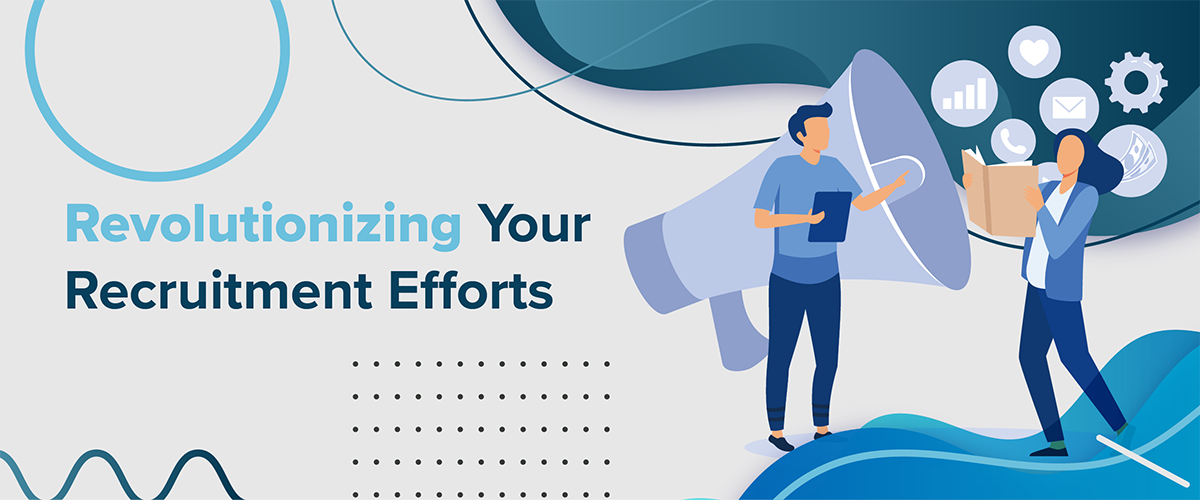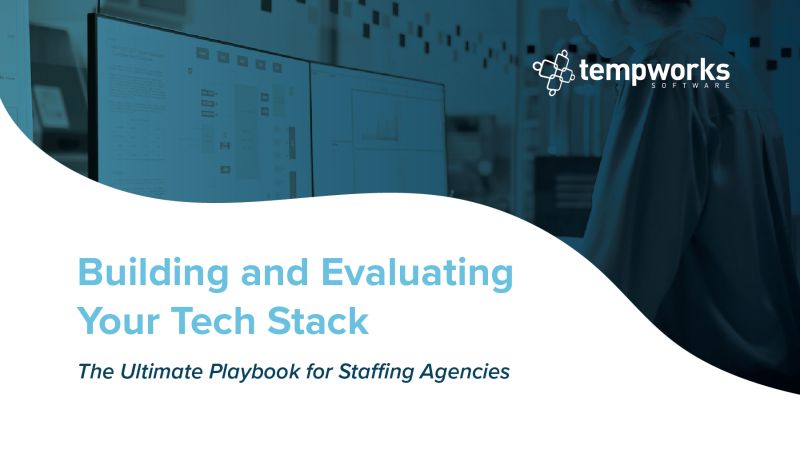AI and automation are reshaping the staffing industry at every level, whether it’s enhancing recruitment or optimizing back-office tasks. Staffing professionals are asking: How is AI transforming the industry? What will it mean for jobs? What technology do you need to be competitive? And how can you prepare for change?
Here’s how technology is impacting staffing firm processes—and how your firm can leverage AI and automation stay competitive.

The Future of Sales
One of the most significant advantages of AI and automation for staffing agencies lies in empowering their sales teams.
Automation plays a crucial role in streamlining administrative tasks associated with the sales process, such as managing client communication, scheduling appointments, and generating reports. With routine tasks automated, sales representatives can focus their time and energy on building meaningful relationships with customers, which boosts client retention and increases revenue growth.
As technology continues to develop, sales teams will be able to leverage AI-powered analytics and predictive modeling. With AI-powered analytics and predictive modeling, sales professionals can gain valuable insights into market trends, client preferences, and candidate profiles. This enables them to identify promising leads more efficiently, tailor their pitches to individual client needs, and ultimately close deals faster.

The Future of Onboarding
We know how time-sensitive onboarding is. You want to put your talent to work as quickly as possible—and before your competitors can scoop them up. Today, onboarding is quicker than ever, with tools available to automate your paperwork, send reminders to talent, and more.
To optimize your onboarding process, you can take advantage of fully integrated technology that connects directly to your staffing software. This includes background checks, WOTC assessments, benefits, and more.
With the right technology, automation can streamline the administrative aspects of onboarding, such as collecting and verifying candidate credentials, processing employment contracts, and managing payroll information. By automating these tasks, agencies can minimize errors, reduce processing times, and provide a seamless experience for both candidates and clients.

The Future of the Recruiter
Recruitment lies at the heart of your staffing firm’s operations, and it’s the area undergoing the most transformation as technology advances. Advanced ATS platforms can sift through large volumes of resumes, analyze candidate profiles, and identify the most qualified individuals for specific roles. Machine learning algorithms can also learn from past hiring decisions to continuously refine and improve candidate selection processes.
Additionally, automation can streamline interview scheduling, candidate communication, and more. By automating these tasks, recruiters can focus on building relationships with candidates, conducting in-depth assessments, and providing value-added services to clients.

The Future of Your Back Office
Your back-office team works behind the scenes to keep your staffing firm running smoothly. AI and automation can make their jobs easier by enhancing efficiency in areas such as payroll processing, invoicing, and compliance management. For example, advanced payroll systems can accurately calculate wages, taxes, and deductions, ensuring compliance with regulations and minimizing the risk of errors.
Automation can also facilitate document management, contract generation, and record-keeping, enabling agencies to maintain accurate and up-to-date records while reducing administrative overhead. By automating routine back-office tasks, staffing agencies can redirect resources towards strategic initiatives, innovation, and growth opportunities.
Make sure you have the right technology and the right teams behind you. Learn how TempWorks and Lone Oak can untangle your back office.
What’s next?
The staffing industry is changing. Make sure you have the right technology and processes to stay competitive.
By embracing AI and automation, staffing agencies can unlock new levels of efficiency, agility, and client satisfaction, positioning themselves for success in an increasingly competitive market landscape.

